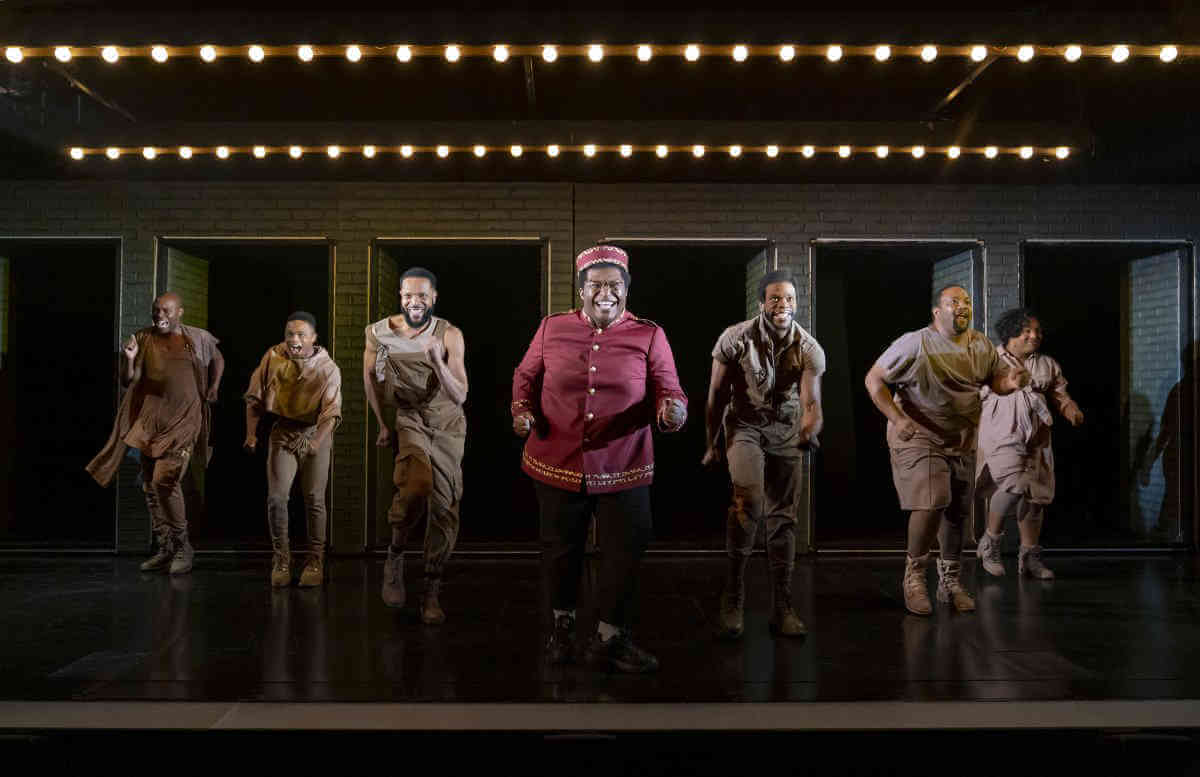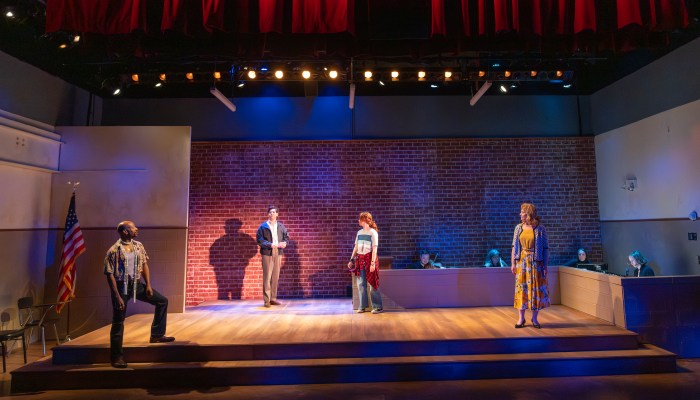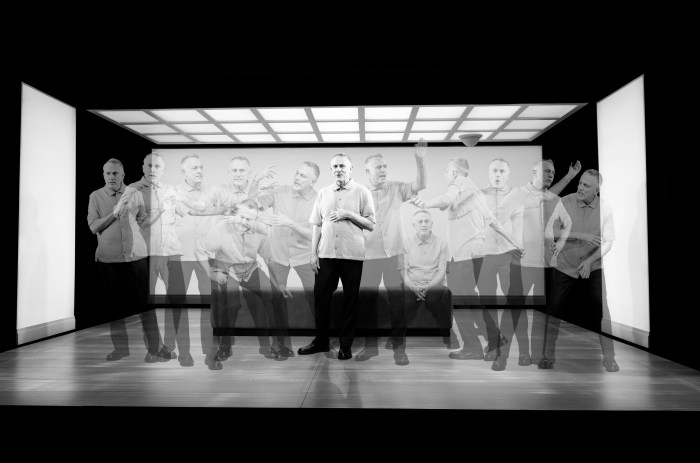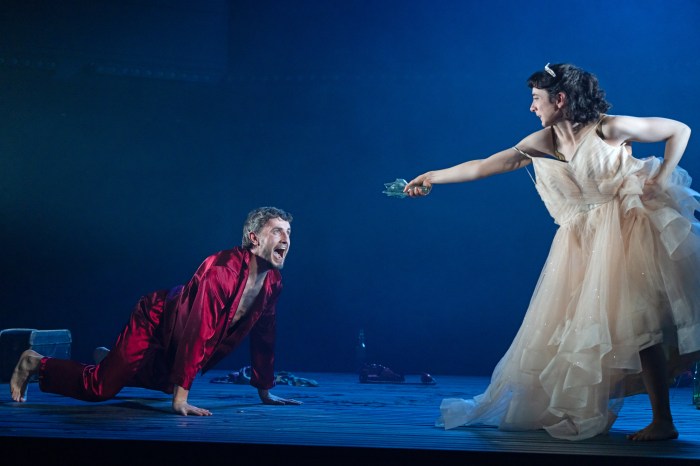At the top of “A Strange Loop,” the brash, 25-year-young protagonist called Usher announces that the show will portray what it’s like to “travel the world in a fat black queer body” as he obsesses over the latest draft of his self-referential musical (titled “A Strange Loop”). “There will be butt-fucking,” he warns. Or is it a promise?
Over the next hour and 45 minutes, the valiant Usher, who happens to work as an usher at “The Lion King” on Broadway dealing with white “asshole tourists,” takes us through the process, plagued by self-doubt and, at times, self-hatred.
Under the direction of Stephen Brackett (“Be More Chill”), Usher’s interior dialogue is brilliantly realized by a chorus of “thoughts,” a spirited group of six black queer actors who articulate his hopes and fears. One thought is called his “Daily Self-Loathing,” another is his “Financial Faggotry,” while another is “Supervisor of Sexual Ambivalence.” They all talk like Wendy Williams.
These thoughts also take the form of his God-fearing folks back home in Detroit, who have no clue what it takes to get a play produced in New York. They beg him to write a “nice, clean, Tyler Perry-like gospel play.” What unfolds onstage certainly has elements of a gospel musical populated by zany, stereotypical Tyler Perry characters, but it’s anything but nice and clean.
“A Strange Loop,” courtesy of Playwrights Horizons in association with Page 73, is sprung from the slightly demented, possibly genius mind of Michael R. Jackson, who wrote the book, music, and lyrics. It’s a safe bet that much of the material is drawn from personal experience.
The sharp, witty musical number, “Exile in Gayville,” recounts Usher’s attempts to find sex via hookup apps like Scruff and Grindr. “Looking? Into? Hung?” is the refrain. Sadly, he is cruelly rebuffed. “Too fat. Too black. Yr dick 2 small,” the white guys yell in unison.
As Usher, Larry Owens perfectly captures the ambivalence of a marginalized black playwright in a predominantly white man’s game. Sure, Usher can be a smart aleck, but Owens lends a vulnerability that keeps us rooting for the dramatist, even as his life and the musical itself whirl out of control.
The play’s title is not easy to pin down. On one level of course, “A Strange Loop” refers to this circular musical about a musical. Yet it also refers to the cognitive phenomenon of self-perception where, despite appearing to moving forward, we unexpectedly find ourselves right back where we started. Usher navigates multiple strange loops in trying to make his dream a reality and claim his identity. These loops involve prejudice against African Americans, gay men, and even overweight people. Setbacks abound.
“Strange Loop” is also the title of a song by Liz Phair, one of Usher’s favorite singers. When he channels his “inner white girl” to write musical numbers, he’s drawing strength from her.
If Jackson’s goal is to employ his ferocious voice to shake up complacent theatergoers accustomed to a steady diet of musicals based on popular movies like “Tootsie,” “Mean Girls,” and “The Lion King,” he has succeeded all too well.
For me, about two-thirds in, he crosses the line from provocative to punishing. The relentless barbed dialogue about gay sex (“bareback and felching,” “filthy little sissy”) and race (“nigguh,” “dumb monkey”) becomes overwhelming. A meth-fueled hookup with master/ slave overtones appears to border on rape. During a spirited gospel number, Usher in pastor mode beckons the audience to clap along to the chant “AIDS is God’s punishment.” Some people did, but I refused to play along.
When Usher sang, “Where are my boundaries?” I began to wonder the same about Jackson.
Early on in “A Strange Loop,” the thoughts declare, “No one cares about a writer who is struggling to write. They’ll say it’s way too repetitious. And so overly ambitious.”
I do care about the struggling writer onstage. Very much. But by the end of this astonishing yet challenging endeavor, I found myself in agreement: too repetitious and overly ambitious.
A STRANGE LOOP | Playwrights Horizons, Mainstage Theater, 416 W. 42nd St. | Through Jul. 7: Tue.-Wed. at 7 p.m.; Thu.-Sat. at 8 p.m.; Sun. at 7:30 p.m.; Sat.-Sun. at 2:30 p.m. | $49-$89 at playwrightshorizons.org | One hr., 45 mins., with no intermission



































